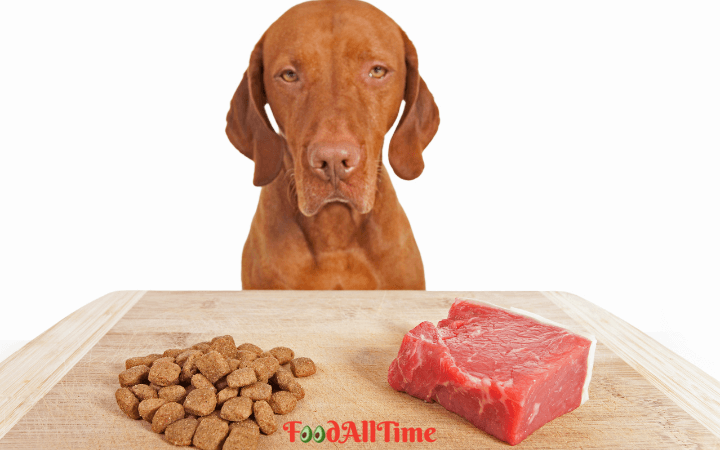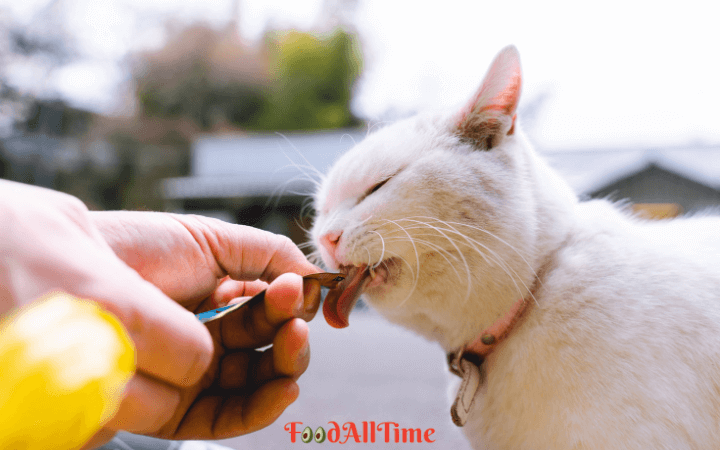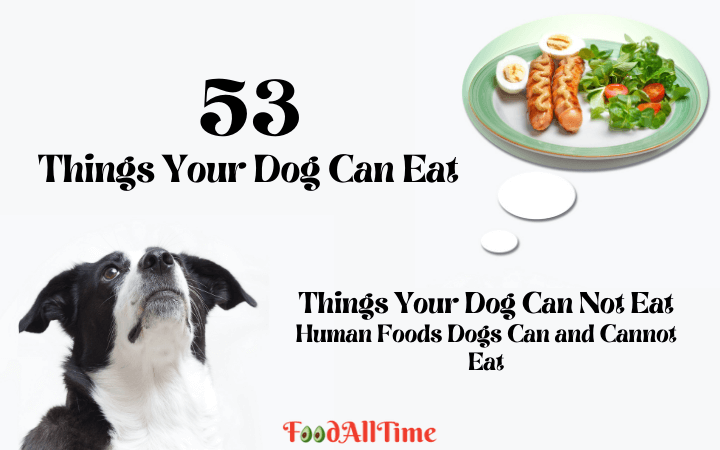Affiliate Disclosure: Every purchase made through our affiliate links earns us a pro-rated commission without any additional cost to you. We may earn an affiliate commission if you order any product. Here are more details about our affiliate disclosure.
Despite not being very active around humans, cats have a way of getting emotionally attached to their owners.
However, there are also many people who like to pet cars for the benefits that come along with a quiet animal.
House cats also have different preferences when it comes to food, which means you will need to consider some things while choosing the diet plan for your cat.
Did you know that many people get into a dilemma about whether their cats can eat mac and cheese?
That’s why we’re going to talk about this issue in this article about whether or not cats can eat macaroni and cheese.
Can Cats Eat Mac and Cheese?
Cats have different nutritional needs than humans, so this answer is difficult to provide.
Experts recommend not feeding your cat mac and cheese because it contains high amounts of fat and carbohydrates that can negatively affect the health of your cat.
Always follow the meal plan approved by your vet rather than what you think may be a healthier alternative.
Mac and cheese is a human meal that contains some fat and carbohydrates. Humans need more fat and carbohydrates than other animals, so mac and cheese is a perfect meal for them.
However, for cats, kraft mac and cheese is not an appropriate meal. This can have a negative impact on their health rather than providing any benefits.
Your cats might like foods with a salty taste, and cheese can be one of these options. However, if they eat too much cheese it may upset their stomach. Also, blue cheeses, cream cheeses, or parmesan aren’t suitable cat foods.
Cheese can pose a problem if your cat is lactose intolerant and has a milk allergy. Similarly, if your cat has heart problems you should avoid any sort of cheese as treats.
If you want to avoid stomach problems in your cat, it’s best to completely avoid giving them mac and cheese.
A small portion of mac and cheese can cause problems in their digestive system.
And a small portion of mac and cheese contains high amounts of fat and carbohydrates that can have a negative impact on your cat’s health.
So don’t give them any, instead offer them small portions of cheddar cheese but not too much of it.
Are Macaroni And Cheese Safe For A Cat To Eat?
You shouldn’t give your cat macaroni and cheese. Macaroni is high in fat and carbs, so it isn’t really a healthy option for your pet.
There is always specific meal plan your vet recommends for your cat, and with cats, you need to follow a special dietary plan.
For example, you can’t offer them a diet high in fat and carbohydrates like mac and cheese.
The high levels of fat and carbohydrates in mac and cheese can be harmful to your cat’s health.
For this reason, if your cat has heart problems or you are going to be following a low-salt diet, then you should never give it mac and cheese.
As mac & cheese contain a high amount of salt which can cause health complications, you should avoid giving your cats mac & cheese as a meal
How Much Do Cats Like Mac And Cheese? Can Cats Eat Vegan Mac And Cheese?
As you probably know, mac and cheese have a salty taste that cats love. When they catch a whiff of the cheese flavour, they’ll make a beeline straight to your kitchen.
If you make mac and cheese every day, they may even eat it as long as they’re not full or bored with the flavor.
Some cats are pickier than others and don’t like the taste or aroma of mac and cheese. Those that do like the taste typically enjoy both flavours of the dish.
Cats can eat vegan mac and cheese as long as there are low amounts of fat and carbohydrates.
Unfortunately, you will have to be careful about portions because it is not possible to offer a large portion of vegan mac and cheese.
Vegan mac and cheese usually contains high levels of salt so you shouldn’t give your cat too much in one sitting.
4 Reasons Cats Should Never Eat Mac And Cheese
Cats shouldn’t eat macaroni and cheese for many reasons. Most of them are about how the food can affect the health of their cats in some negative way.
Macaroni and cheese can cause allergic reactions, heart problems, and other health complications that harm your cat.
Also, the fat present in mac and cheese can have a negative effect on your cat’s health. The reasons why you don’t want your furry friends to eat this dish are given below:
Fats and carbohydrates:
Macaroni and cheese is bad for cats. It contains high amounts of fat and carbs, which can lead to obesity or other health issues for your pets.
Even just a small amount of this food can lead to many negative effects in the future like obesity.
With high doses of fat and carbs, your cat will be lazy as well as overweight.
Higher salt intake:
Mac and Cheese are very salty and can be a health risk. If your cat has trouble with their salt intake, you should avoid giving them macaroni and cheese completely.
Heart complications:
You shouldn’t give mac and cheese to your cat if it has heart problems. The fat and salt in mac and cheese can sometimes cause heart problems in cats.
Problems in the digestive system:
If you give your cat macaroni and cheese regularly, then it can cause problems with the digestive system. Too much intake of macaroni and cheese can upset your cat’s stomach.
What Happens If A Cat Eats Mac And Cheese?
A lot of cats can’t digest milk and cheese because they are high in fat and carbohydrates.
If a cat were to eat macaroni and cheese, it would upset their stomach because the recipe doesn’t have any garlic or onion in it.
In addition, if the macaroni had anything seasoned on it, that could also make your feline friend uncomfortable.
Likewise, mac and cheese is extremely unhealthy for your cat. Excess consumption of this food can lead to health complications as it’s high in cholesterol.
If you see your cat consuming mac and cheese in significant amounts, contact a veterinarian immediately.
If your cat has heart complications, then you should stay away from giving it mac and cheese because that could make the problem worse.
If your cat has consumed mac and cheese and started experiencing heart problems, take it to the vet as soon as possible.
What If Your Cat’s Been Eating Mac And Cheese?
Below, we’ve outlined all the steps that you can take if your cat decides to eat mac and cheese.
They’re numbered in a clear and simple format, so you just need to follow them, step by step.
For Lactose intolerance:
Lactose intolerance often cause symptoms such as gas, diarrhea, bloating, stomach pain and cramping.
If your cat is lactose intolerant, it could result in symptoms such as diarrhea, vomiting and stomach pain after eating mac and cheese. If you notice these symptoms then please call your vet right away.
For Cheeses:
If your cat has eaten any type of cheese, you should examine the flavor. As not all types of cheese are safe for cats.
For instance, if your cat has eaten 100 grams of blue cheese then there’s a chance it could go through stomach bloating as well as gastric problems.
This is why if you think that your cat has eaten too much cheese, you should take it to the vet as soon as possible.
For Heart complications:
If your cat has got heart problems, you should take it to the vet as soon as possible.
Dairies can worsen a pets heart issues and should avoid dairy products for those who have cats with these problems!
For Salt intake:
If you’re cat has less salt in their diet and they’ve eaten mac and cheese, then you’ll need to wait.
If they’ve only just eaten it, take them to the vet right away because there might be complications.
If they have already eaten it but you’re concerned about potential health complications, give them time to show symptoms before taking them to the vet.
The Conclusion
There are better options than giving your cat mac and cheese.
Macaroni and cheese is high in fat and carbohydrates, which can cause health problems like heart trouble, obesity, bloating, vomiting, etc. You should avoid giving your cat dairy products as well.







